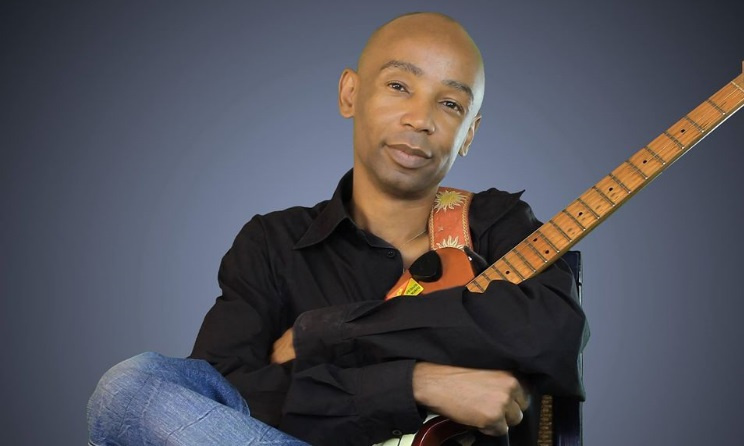Gramma Records crisis points to failure of Zimbabwean state
Gramma Records, one of the Zimbabwe’s oldest music recording and distribution companies, together with its sister firms Zimbabwe Music Company (ZMC), Ngaavongwe Records and Records and Tape Promotions, has failed to attract buyers.
 Mono Mukundu says the problem with Gramma Records is that it has failed to adapt to new global production methods.
Mono Mukundu says the problem with Gramma Records is that it has failed to adapt to new global production methods.
The record company, which boasts of an extensive catalogue of local music dating back to the 1970s, also owns state-of-the-art recording studios and CD manufacturing plants.
A notice published last year reads: “Sale by Tender – Gramma Records, which pioneered the recording, production and distribution of local music in the early 1970s and its sister companies – Zimbabwe Music Company (ZMC), Ngaavongwe Records and Records and Tape Promotions – are up for sale. Gramma Records has a deep catalogue of local music plus an array of recording and manufacturing plants.”
The stable’s managing director, Emmanuel Vhori, told local publication Daily News that the company has had no takers so far. “I have been away from work for some weeks now but at the time I left there had been no movement on the purchase,” Vhori said.
Gramma Records has recorded some of Zimbabwe’s big names including Thomas Mapfumo, Four Brothers, Jonah Moyo, Mechanic Manyeruke, Alick Macheso, Nicholas Zacharia, Charles and Olivia Charamba, the late System Tazvida, Leonard Dembo, Paul Matavire and Biggie Tembo. ZMC has recorded the likes of Oliver Mtukudzi, Leonard Zhakata and Lovemore Majaivana, among others.
Gramma Records, which was once owned by Lonrho, was in recent years sold to gospel singer Elias Musakwa and the late Josiah Tungamirai. However, the company has fallen on hard times due to the rise of piracy as well as a mass exodus of prominent artists. The Zimbabwean government is still to come up with laws that will curb the scourge of piracy.
Musician and sculptor Bryn Mteki, best known as Sekuru Tau, said Gramma Records could be a good buy. “I am not aware that the franchise is on sale because I should have considered it," he said. "I am ready if I am offered the deal. My heart bleeds because the company was recording almost everyone from dancers to backing vocalists, hence killing competitiveness. They should have been screening these overnight musicians because the market ended up being flooded with new releases.”
Mteki also blamed Gramma Records for failing to contain piracy, which had led to top musicians fleeing the stable. He said he had befriended US singer R Kelly so they could record a duet but officials at Gramma Records and ZMC were reluctant to work on the project.
“They said they hadn’t done it before, and this was way before D'Banj started collaborating Snoop Dog, P-Square, Akon and Rick Ross. America is my second home no doubt but Gramma Records failed me and as I speak I am one of the only loyal musicians remaining at the stable."
Mteki said he could turn around fortunes at Gramma records and “merge it with Sekurutau World Music, which will add on the vast and fast growing BrynBrands empire."
But the majority of Zimbabwean musicians believe that the franchise is a hard sell given that it is now easy to establish private studios. Guitarist and producer Mono Mukundu said the problem with Gramma Records was that it was trying to operate in an impossible environment.
“Everything about the way Gramma Records was run was conducive for a country with a proper music industry and we currently don’t have it now," Mukundu said. "Their system was mainly based on legitimate music sales; piracy killed that aspect of the industry and the government refused to help.
“Currently the way the Zimbabwean makeshift music industry works is artists record independently then sell the music on their own. But generally, releasing music is now sorely just a way to market oneself, not to make money out of the CD sales. So CDs are sort of the new business cards for artists."
Mukundu said another problem that led to Gramma Records’ fall was the company's failure to adapt to new global production methods that independent home studios had quickly grasped.
“Under this system the main asset in the studio is not the equipment but the music producer and with little gear one can produce world-class quality," he said. “Remember, American artist Curtis Fields won a BET Award in 2013 for an album he recorded on an iPhone, so as a result the main thing that can be easily sold at Gramma Records is the studio.
“But who has the money? Also consider the fact that one can produce great music with a laptop. So unless the country improves economically, it would be risky for anybody to buy the company.”
Guitarist and singer Edith WeUtonga says there is no money in Zimbabwe and that the company could survive "if it's given on a trial basis to those with a business mind".
"There is no industry to talk of and until we have an acknowledgement from our government in the form of a ministry and structures to support the creative sector, it's going to be futile exercise,” she said. “Until the Zimbabwe economy is back on its feet there will be no dispensable income to buy CDs, especially now with the rise of online stores.
“Maybe musicians now should focus on investing in a record company that is doing everything online. There are very few people buying CDs and it is a risk to buy Gramma Records and expect to make money in the next few years.”
Singer Victor Kunonga could only say: “One needs to dig deep into why the franchise is in a mess, lest one buys a shell. Is it really as solid as it was? I wonder.”
Veteran singer Jonah Moyo, who made his name at Gramma Records, said: “Technology is changing every day and soon CDs will be a thing of the past, so I think it is not worth buying Gramma Records. As for my catalogue, I have it all here from Volume 1 to 38.”
Guitarist Pablo Nakapa said that years ago the record industry was a viable business. “There was no piracy, no backyard recording studios. If it was well, then we as musicians would buy it. But truly speaking, it is as good as buying a dead donkey,” he said.
“There are too many studios out there; one wouldn't even bother to record at Gramma Records. Personally I wouldn't buy Gramma Records when I know I can have a small recording studio in my house doing exactly the same job Gramma Records does and my recordings being played in the same radio stations as Gramma’s. No ways.”
Singer Dino Mudondo said: “It's not worth it at all with our government supporting piracy and allowing law enforcement agents to buy pirated copies.”
Local rapper Desmond Chideme, best known as Musician Stunner, said: “There is no real structure in the music industry. One would just be headed for a loss. But one could also try."
In a recent article published on Music In Africa, Sandara Ndebele, who signed a deal with US music publishing company OMG Studios, said: “Gramma has to put its house in order before we submit new works with them. Seeing that I want to grow my brand beyond the region, that's why I opted for them [OMG Studios] because they have the capacity to create that platform for us.”
This article was originaly published in Daily News.


























Comments
Log in or register to post comments